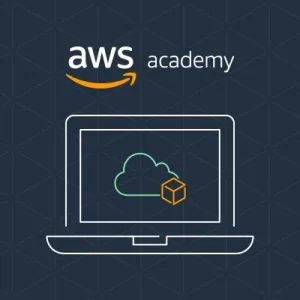
This programme integrates computer science, programming, art/design, social science, and business knowledge, with a focus on the leading industries of Cloud Computing, AI, Cyber Security, Game Development, and Web & App Development. Real-world team projects equip you with the skills to make a meaningful impact.
Multi-disciplinary: You will learn computer science, programming, art and design, social science, and business knowledge.
Project Based: The programme is heavily focused on project-based learning so you graduate with real-world skills.
Project-based learning
This Degree is heavily focused on project-based learning so you graduate with real skills. Over 50% of course time is dedicated to tutor-led programming, with an additional 15% focused on group projects run in a studio-like environment and, with a focus on innovation and entrepreneurship.
Partnering with IBM
IBM will deliver the artificial intelligence and cybersecurity elective courses, equipping students with in-demand skills spanning Information Technology, Gaming, and App Development. IBM’s networks and open-source technology mean our students get learning experiences that integrate a balance of theory, hands-on labs and industry case studies that reflect real-world challenges.
If you complete the Cyber Security or AI electives in year two, you’ll have an opportunity to earn an IBM Digital Badge Certification in Data Science, AI, and Cybersecurity on top of your Bachelor of Software Engineering Degree. IBM digital badges allow employers to easily find and recruit you with the specific qualifications they are looking for – giving you a competitive edge in the workforce.
Our Software Engineering students have access to AWS certifications, IBM Digital Badge Certifications & our cyber security students will also have an opportunity to receive a data-rich digital badge from Cisco Networking Academy. These are all recognised in the tech industry, enhancing your career opportunities.


Your first year of study is all about gaining a solid foundation in software engineering and learning core skills in a range of essential areas. You will achieve this through practical collaborative project work involving design principles, algorithms and object oriented programming. This foundational year equips you with a wide range of skills and affords you time to figure out what type of career you’d like to have by choosing a specialist topic.
Learn the foundation principles, tools and best practice for the design of content and user experience (UX).
Learn the fundamentals of programming along with software development techniques and tools used in the creation of modern applications.
This project-based introduction to the software development lifecycle (SDLC) helps you develop your understanding as you apply the skills and concepts introduced in the first two modules.
This is the year you really get to follow your passions and specialise in the areas that are of most interest to you. The specialist topics we offer are:
You’ll focus on how Artificial Intelligence (AI) concepts and classifications are used to design intelligent systems. This includes investigation of representation, reasoning, search methods and intelligent agents. You’ll also explore AI classifications such as Machine Learning, Robotic, Natural Language Processing, Speech Recognition, Expert Systems, Computer Vision, and how they are used to make intelligent systems.
Understand cloud concepts and models, cloud security, and infrastructure mechanisms along with various popular vendor specific Microservices. You’ll identify the building blocks of cloud computing through a combination of tutorials, workshops, and self-directed learning and research within specific types of environments. Topics include introduction to cloud providers, scaling, cloud services, cloud delivery models, cloud deployment models, cloud security, cloud usage monitors, cloud storage devices and load balance.
You’ll deepen your understanding of cloud computing technologies and develop and design cloud solutions concepts from a business and technical perspective including services, architecture, system integration, connectivity, administration and security. You’ll explore the locking and unlocking of the cloud, including security, integration into existing operations and optimised performance. Get hands on experience with the cloud providers that dictate a major share of the Australian and New Zealand market. You’ll also get hands on with vendor certification to ensure you have a competitive advantage when looking to enter the industry.
Understand the fundamentals of networking and systems administration including issues, skills and strategies associated with providing core services over a network in a multiuser environment. You’ll learn about hardware and software stacks for communication infrastructures, computer systems and different network architectures and topology. You’ll also be introduced to tools for management and monitoring to ensure the optimum performance of a system in terms of security, cost, and speed.
You will cover a range of topics including attacks on privacy, static and dynamic analysis of malware, hardware security, network security and trending applications. You’ll explore different aspects in Cybersecurity relating to cryptography, public key infrastructure, security principles and models, threats and vulnerability management and privacy and anonymity issues.
Immerse yourself in software design and construction. Get an introduction to several software design patterns and processes that enable the creation of high-quality software, and learn to analyse specific software projects and use design language (UML) for modelling the development process.
Develop an understanding of how games act as a force for good and their utility is growing beyond entertainment.
Implement a prototype and minimal viable product for your personal creative project and receive feedback in scheduled critique sessions. This is an opportunity to reflect on research and development practices and strategies in a process of double-loop learning.
Develop a commercially or socially viable capstone project (building on your proof of concept prototype developed in the Investigative Studio 2 module). Apply the skills and expertise you developed throughout the programme as part of an integrated production team.